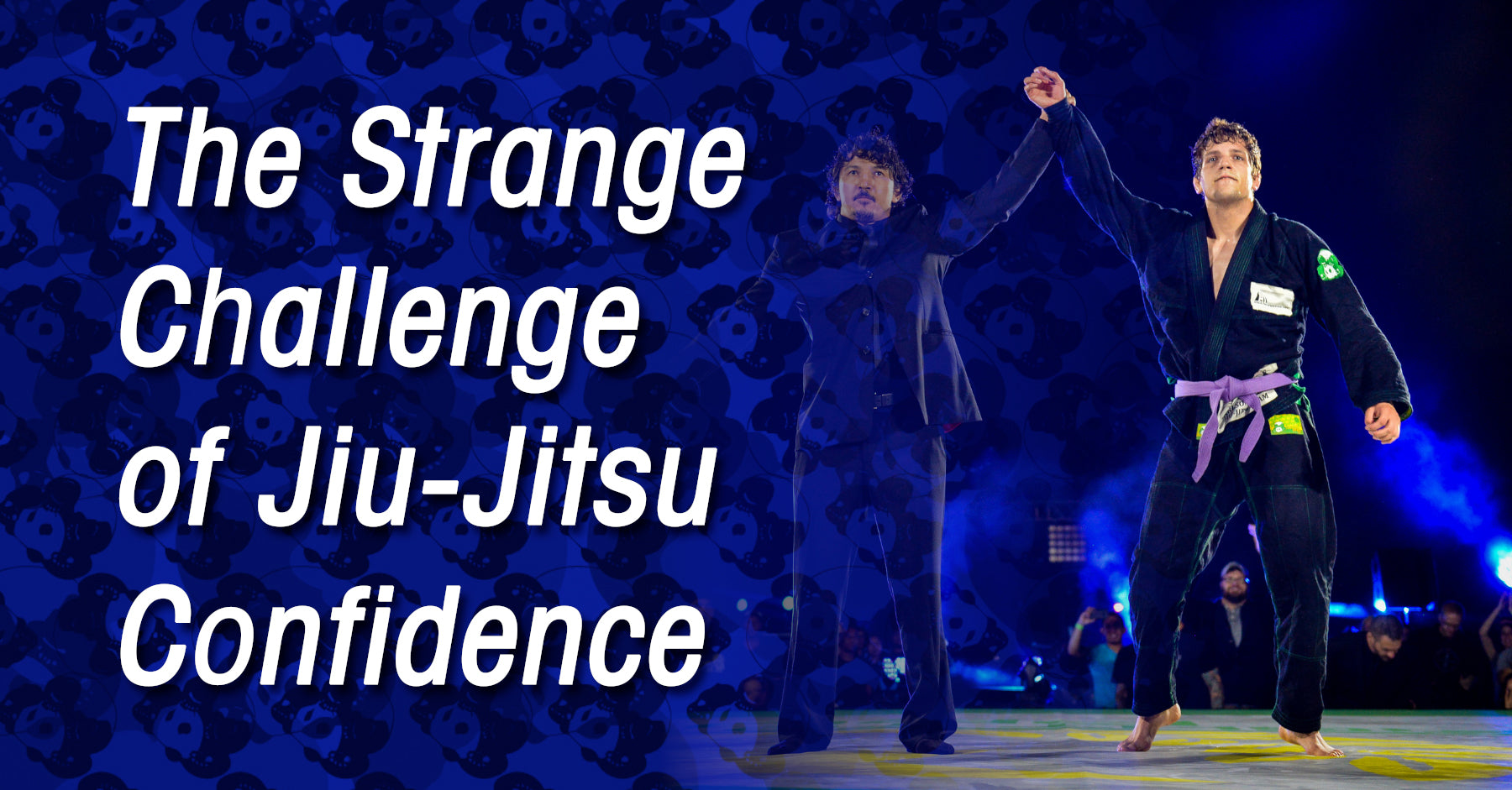
The Strange Challenge of Jiu-Jitsu Confidence
The fight community has talked for years about the importance of a fighter’s mind. Some commentators simply describe the resilient “never say die” attitude as heart, and writers like Sam Sheridan have tried to find a deeper articulation of what makes athletes like Dan Gable legendary for not only their work ethic but their seemingly superhuman ability to stare-down immense challenges.
The importance of this topic was solidified for me when Georges St. Pierre—perhaps one of the greatest mixed martial artists we have yet seen—talked about how he needed to see a sports psychologist after his loss to Matt Serra. St. Pierre had all of the gifts, the ability, and the resources to be a world champion, but top tier conditioning and the world’s best coaches were not enough. To get his career back on track after a devastating loss, he had to devote professional attention to his mind.
For all of the lip service we pay to the importance of the mind in combat sports, almost no jiu-jitsu schools are actively trying to train the mind. They offer words of inspiration and push their students through tough training sessions, but that’s usually where it stops. For students who naturally gravitate toward a survival of the fittest training environment, this can work just fine, but for students who don’t naturally have a deep well of self-confidence and mental fortitude, not easing a student into developing their combat mind is just as disastrous as dropping an out of shape individual into an advanced workout.
They fail in a big way, and they are likely to just give up rather than persevere.
I say all this because I was one of those students. I am not a naturally confident person in any area of my life (which is why I came to jiu-jitsu in the first place). I happened to survive the meat grinder of getting hopelessly demolished by upper belts almost solely because of my superhero kung fu fantasies. I simply believed that I would pop out the other hand a mythical martial arts god (I didn’t).
For the more reasonable people who don’t have comic book delusions but are otherwise just like me, I see them struggle. Intensely.
If you are like me or are, perhaps, teaching students like me, here is how I have gone about building my own jiu-jitsu self-confidence and how I have worked to build it in my students. I like to think we are making progress, but maybe one or two of them can chime in the comments to confirm whether or not I am totally full of nonsense.
My approach looks like this:
I recognize that this article covers the most basic of the basic ideas around developing confidence in yourself. There is a great deal of depth and insight to be had by learning about the latest developments in coaching and sports psychology, but if you can at least recognize that you need to train your mind just as much as your body, you will be taking a valuable step toward improving yourself as a grappler.
Other articles:
Quick links
Contact us
About us
Quality BJJ gear at fair prices, available all year. Founded in 2012 to provide an alternative to high-cost, limited edition gis. Dive into the BJJ lifestyle with us—join the Panda Nation!"
